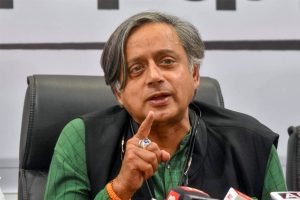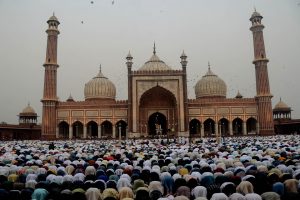Union Home Minister Amit Shah, during his visit to Jagdalpur in southern Chhattisgarh, declared that India would be free of Maoist insurgency by March 31, 2026, under the leadership of Prime Minister Narendra Modi.
While attending the closing ceremony of the Bastar Olympics, Shah reaffirmed the Centre’s commitment, along with the Chhattisgarh government, to ending left-wing extremism, describing the effort as a mission to restore peace and development in the state.
Advertisement
“Chhattisgarh has been the epicentre of Maoist activity, but under the leadership of Chief Minister Vishnu Deo Sai, we will eliminate Maoist insurgency not only in this state but across the country. Once Chhattisgarh is free, the nation will be free,” Shah asserted, as thousands listened attentively.
Shah highlighted the exemplary achievements of the Chhattisgarh Police over the past year, noting significant victories in the fight against extremism. “Last year alone, the police neutralised 287 Maoists, arrested over 1,000, and secured the surrender of 837 militants. This shows their bravery, commitment, and deep connection with the people,” Shah said.
The Home Minister urged Maoist cadres to embrace the government’s comprehensive surrender and rehabilitation policy. “We have created a robust surrender policy offering opportunities for a peaceful and prosperous life. Lay down your weapons and join the mainstream to contribute to the development of the state and the nation,” he appealed.
The Bastar Olympics, which concluded in Jagdalpur with great fanfare, celebrated the region’s tribal heritage while empowering its youth. The event, which began on November 5, spanned seven districts of Bastar — Kanker, Kondagaon, Bijapur, Bastar, Sukma, Dantewada, and Narayanpur — bringing together thousands of participants to showcase their talent in traditional tribal sports.
Deputy Chief Minister Vijay Sharma highlighted the transformative role of the Olympics in offering a constructive outlet for the region’s youth. “These games are more than a celebration of sports and culture. They inspire the youth to stay away from violence, discover their potential, and shine on larger platforms,” Sharma said.
The initiative was widely appreciated for fostering unity and creating a positive connection between the state government and tribal communities. With a focus on traditional sports and cultural pride, the event is seen as a vital step towards countering extremist influences in the region.
Earlier in the day, Shah attended the prestigious President’s Police Colour Award ceremony in Raipur, where the Chhattisgarh Police was honoured for its 24 years of outstanding service. The President’s Police Colour, considered the highest recognition for a police force in India, was awarded in recognition of the force’s unwavering dedication to law enforcement and its exemplary role in anti-Maoist operations.
“This award is not just a decoration — it is a symbol of sacrifice and responsibility,” Shah said. He commended the Chhattisgarh police for their courage and perseverance in the face of challenging circumstances, adding, “I have no doubt that every officer and jawan of the Chhattisgarh Police will continue to fulfil their duty with unwavering dedication.”
Chief Minister Vishnu Deo Sai described the award as a defining moment for the state. “In just 24 years of statehood, the Chhattisgarh Police have earned this remarkable distinction. This recognition will not only boost their morale but also serve as an inspiration to continue serving the people with integrity and bravery,” Sai remarked.
Later in Jagdalpur, Shah paid homage to the martyrs of the Maoist conflict and met the families of victims and personnel affected by left-wing extremism. He visited security camps, reviewed ongoing developmental projects, and shared a meal with security personnel stationed in remote areas.
Shah underscored the declining influence of Maoist ideology, citing reduced casualties among civilians and security forces for the first time in four decades. “This progress reflects the coordinated efforts of the Centre and the state in promoting security and development,” he said.
As Chhattisgarh marches towards becoming Maoist-free, initiatives like the Bastar Olympics, coupled with robust anti-Maoist operations, signify a united effort to restore peace, pride, and prosperity in the region.
Shah’s visit, marked by optimism and action, sends a clear message — Chhattisgarh is determined to overcome its past and script a new chapter of progress. The resounding success of both the anti-Maoist initiatives and programmes like the Bastar Olympics underscores the transformative journey of the state, as it moves towards reclaiming its rightful place as a region of hope and harmony.
















